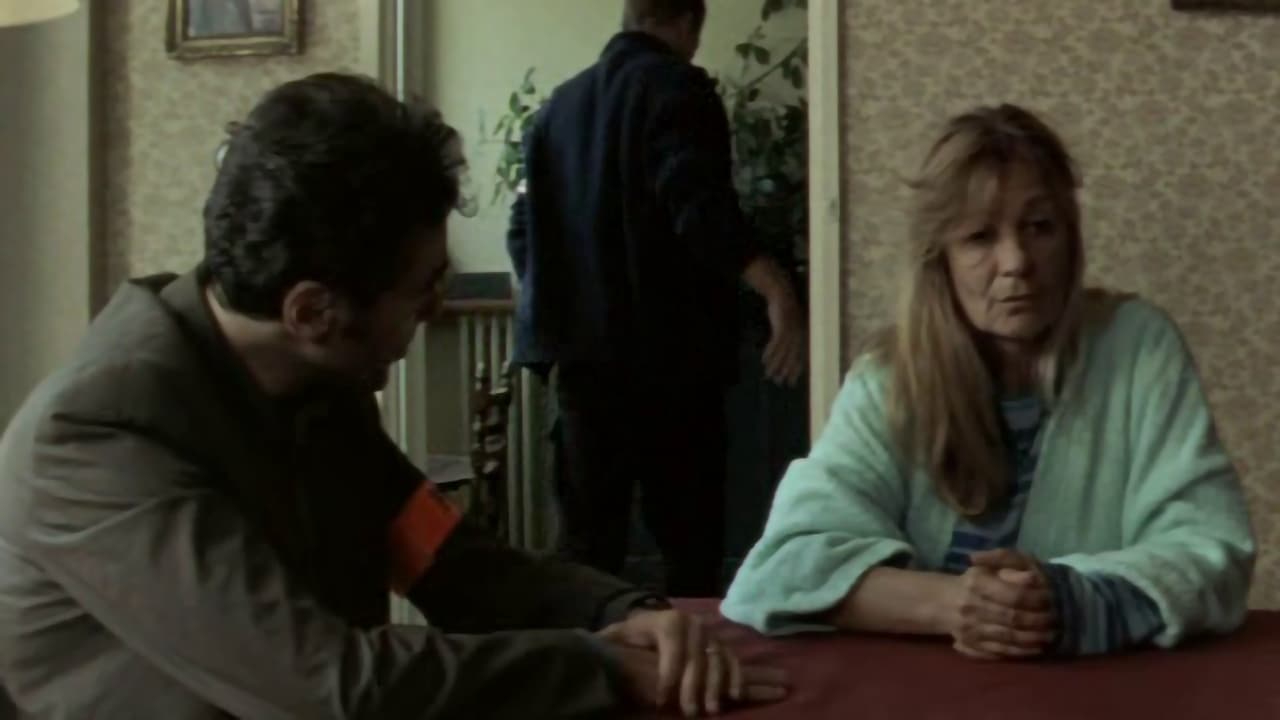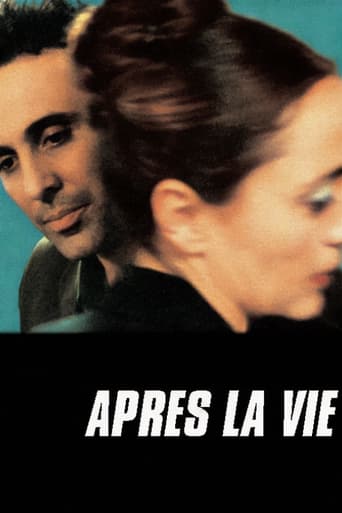

Lucas Belvaux ends his trilogy with « Après la vie», with an ending that seems a happy one, but full of deep melancholy. If «Cavale» was an intense action drama and «Un couple épatant», an entertaining chain of entanglements, in this final installment he opts for realism in the style of films like «Born to Win» and «Taxi Driver». It is because this third film tells us with minutiae the relationship between the police Pascal and his wife Agnes, who is addicted to morphine. And to complicate matters, he is the one who supplies her with the drug. When the plots of the first two movies (the escape of an activist and the suspicion of adultery, respectively) cross their lives, everything becomes completely altered. The arrival of the fugitive suddenly makes Pascal aggressive and violent, because the supply of drugs stops. Pascal (Gilbert Melki, a good Belgian actor with the ideal face for a police drama) cannot control his wife Agnes (Dominique Blanc, extraordinary actress) with her dose at hand. When Agnes asks him for help, as detective to her friend Cécile (Ornella Muti), Pascal becomes confused. Cécile suspects that her husband is cheating on her, and, frustrated by his own emotional life impeded by Agnes' addiction, Pascal believes that he has fallen in love with Cécile. Other subplots are resolved and secrets revealed, as the relationship between the fugitive and a mean pusher, or the sudden confession of who was the real informer responsible for the activists going to prison. However, it is the Pascal-Agnes relationship that dominates the film: it becomes a desperate search for morphine, and absence of love in a harsh society. A great trilogy that I recommend not to miss if it comes your way.
... View MoreI've just seen the trilogy on successive nights on Tele-Quebec. An Amazing Couple, said to be a comedy, is painfully bad: there isn't a joke worthy of the name throughout the full two hours. On The Run is better; it's a good little thriller about a man whose obsessions lead him to join a Baader-Meinhof-type gang. Finally, After Life is a character study of a dedicated detective who unknowingly marries a drug addict, then goes around desperately trying to score drugs for her.Here the actors finally come into their own. Dominique Blanc gives one of the best portrayals of somebody in the grip of addiction that I have seen. Her drug behavior is integrated into her personality in a very convincing way, not just sketched in. The overdose scene is powerful. Her marriage and her role as teacher are suffering from her habit, and she'll have to make a choice. Gilbert Melki shows the tenderness in his cop character; you can believe he'd wreck his career for his wife.
... View MoreI just saw all three movies and have to say that I liked them all. They are good each in its own way. Repeating scenes - every time from a different point of view, the same actors and heroes but different aspects. It is not one story told several times. It is more of several stories (or several lives?) entangled and inseparable from each other.The only negative thing is that the movies are long. So long that I won't buy them on DVD when they will be available (or will I?)But one thing is sure: I'll go watch the next movie made by Belvaux, whatever it might be. This guy will show me something interesting.
... View MoreThis film (which can be seen as a standalone film) is part of a trilogy. Three films, not consecutive, but parallel. Three stories, simultaneous, with same actors, same characters. Main actors in one film are secondary actors in the two others. There are common scenes between each movie, but always shown in a different way, a different point of vue. "Un couple epatant" is a comedy, with (Ornella Muti/Francois Morel),"Cavale" is a thriller, with (Lucas Belvaux/Catherine Frot), and "Apres la vie" is a drama, with (Gilbert Melki/Dominique Blanc).You can see only one or two of these movies, but it is really better to see all of them, as each one enlights some dark moments of the two others. The supposed order is the one i used, but you can see these films in any order.Individually speaking, the films are average (except "Apres la vie", the best one), but globally the experience is very good and very exciting.
... View More